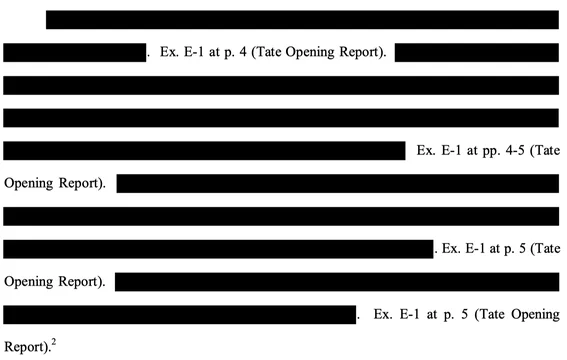
Has it really been four years since Nate wrote this article on How to (Attempt to) Redact a Transcript? That post has aged like fine wine, and I still refer to it regularly as a refresher. Andrew has had a few follow-up posts as well. Redacting a transcript can be harder than it looks, as illustrated by Judge Burke's recent oral order.
In Astellas Pharma Inc. et al v. Ascent Pharmaceuticals, Inc. et al, C.A. 23-486, D.I. 166 (D. Del. Mar. 14, 2025), Judge Burke rejected a joint motion to redact portions of a transcript, citing failure to identify the confidentiality and anticipated harms of disclosure with specificity:
The Court has reviewed the portions of text that the parties seek to redact. As to a majority of that text, the Court cannot easily see how it amounts to confidential information regarding the terms of the alleged settlement agreement. The Motion does not explain, on a statement−by−statement basis, why that is so.
Evidently, many of the proposed redactions included broad descriptions of the licensing dispute and state of a related settlement agreement:
And quite a lot of the words at issue seem like they are high−level descriptors of the breach of contract claim and the related settlement agreement that are found in this Court's publicly−available rulings regarding this subject matter (e.g., references to paragraphs 11 and 16, generic references to a "license"; or statements like "it's our contention we have an agreement" or "we don't have an agreement until this thing is signed" or "This is what Plaintiffs are alleging is the breach of this alleged contract").
In the motion itself, the parties relied (in-part) on an "express[] . . . confidentiality provision" within the draft settlement agreement. Yet, beyond attorney argument, the motion itself was unsupported by any client declaration. We’ve emphasized the importance of having a supporting client declaration for these kinds of motions before.
Would such a declaration have helped clarify to the Court “why disclosure of each of those portions [of redacted content] would work a clearly defined and serious injury to the parties”? I can't say for sure, but clearly the Court wanted more justification that the particular terms required redaction. That is true even though, according to the opinion, the proposed redactions were:
- fairly limited in scope
- agreed upon
- based on a confidentiality provision
All of those considerations together were still not enough to justify redaction here. A client declaration that analyzed the prospective injury of disclosing particular terms on a term-by-term basis could have given this motion a better chance of success.
Ultimately, the Court did not close the door on redactions. Judge Burke denied the motion without prejudice, and ordered the parties to re-file any motion to redact with greater specificity to explain the perceived potential injury of disclosure:
By no later than March 21, 2025, the parties shall re−file any motion to redact, and shall provide therein the portions of the transcript they seek to redact and detailed descriptions as to why disclosure of each of those portions would work a clearly defined and serious injury to the parties.
However, the parties did not file anything on that deadline last week. Maybe they thought better of their proposed redactions.
If you enjoyed this post, consider subscribing to receive free e-mail updates about new posts.




